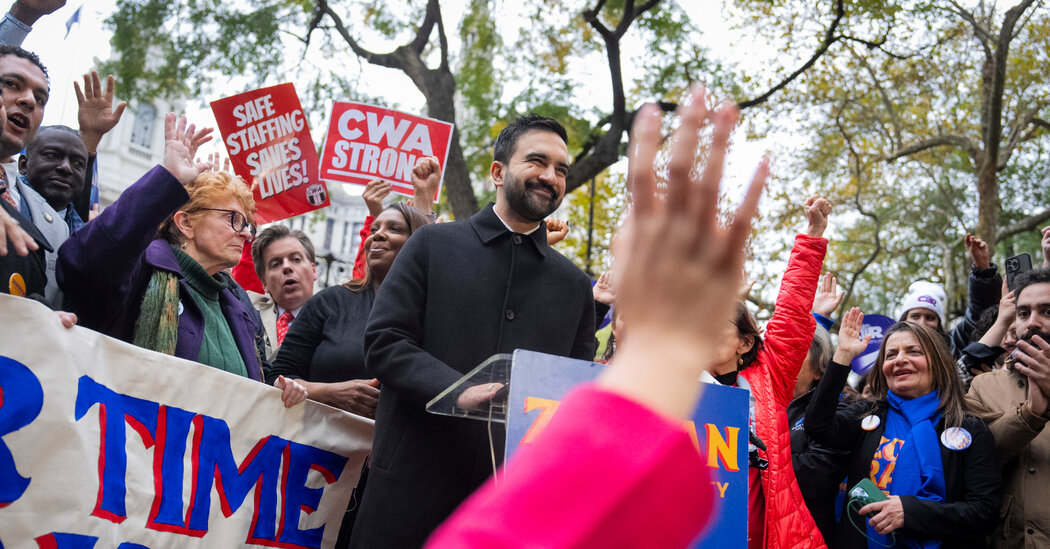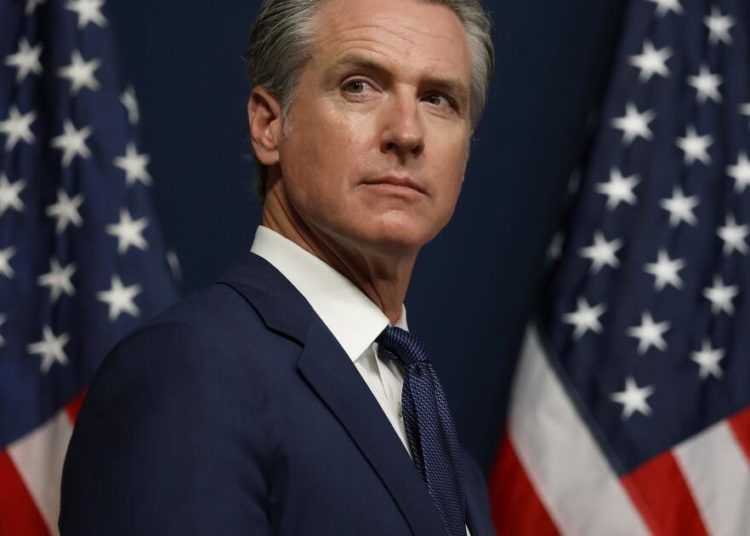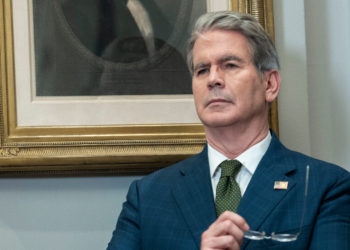After a frenetic and bitterly contested mayoral race that has consumed New York City for months, voters will head to the polls on Tuesday to decide who will run the nation’s largest city.
The three leading candidates — Assemblyman Zohran Mamdani, former Gov. Andrew M. Cuomo and Curtis Sliwa — crisscrossed the city on Monday in an 11th-hour bid to turn out their voting bases, convert the undecideds and fiercely attack their rivals.
A new wrinkle was added on Monday to one central debate — which candidate was best equipped to fend off growing threats from President Trump — when Mr. Trump gave a last-minute endorsement to Mr. Cuomo, a move that could help the candidate with Republican voters but alienate Democrats.
“Whether you personally like Andrew Cuomo or not, you really have no choice,” Mr. Trump wrote on Truth Social. “You must vote for him, and hope he does a fantastic job. He is capable of it, Mamdani is not!”
The president vowed to withhold as much federal funding as he could if Mr. Mamdani was elected, saying the city had “zero chance of success” under him.
If Mamdani wins, “it is highly unlikely that I will be contributing Federal Funds, other than the very minimum as required,” he wrote.
Mr. Mamdani, the Democratic nominee, has consistently led in polls, although more recent surveys suggest that Mr. Cuomo, who is running as an independent, may be drawing closer.
The election’s outcome could have a major impact on the nation’s financial capital, the eight million people who call the city home and the tone of national politics heading into the midterm elections next year.
Mr. Mamdani, 34, is vying to become the city’s first Muslim mayor, the second to be a democratic socialist and the youngest to lead City Hall in more than a century. He would also be among the city’s least experienced mayors in modern history.
But he has built a formidable coalition from some nontraditional sources, winning support from young professionals, immigrants and Muslims — some of them likely to have been among the 107,000 first-time voters who have registered in New York City since the primary.
His supporters cite Mr. Mamdani’s focus on making the city more affordable, his hopeful message and his energetic way of delivering it. All of that was on display early Monday morning, as he walked across the Brooklyn Bridge at sunrise.
“We stand on the verge of ushering in a new day for our city,” Mr. Mamdani said in a speech outside City Hall, adding that he was “confident but not complacent” about winning on Tuesday.
The fervor over the race seemed to be reflected in early voting totals: More than 735,000 people voted early, according to the Board of Elections, more than four times the number of ballots cast in the same period during the 2021 mayoral contest.
The race has been unpredictable, even unprecedented.
Mayor Eric Adams, the Democratic incumbent, had hoped to run for a second term. But his plans were derailed by his federal indictment on corruption charges and his relationship with Mr. Trump, whose administration dropped the charges. No sitting mayor in the modern history of New York City had been indicted until Mr. Adams. He abandoned his re-election campaign in September.
More than half a dozen Democrats entered the mayor’s race, including Mr. Mamdani, a little-known state lawmaker, and Mr. Cuomo, who was seeking a political comeback after his resignation in 2021 following a series of sexual harassment allegations that he denies.
Mr. Cuomo, 67, was the front-runner for months, but Mr. Mamdani’s affordability message, online videos and charisma helped him secure a decisive victory in June’s Democratic primary.
The general election became a rematch between Mr. Mamdani and Mr. Cuomo, with the addition of Mr. Sliwa, the Republican candidate and founder of the Guardian Angels.
The three candidates appeared in two memorable debates, weighing in on the importance of parades and whether they had used legal cannabis. Mr. Mamdani focused on his policy plans like free buses; Mr. Cuomo argued he had more experience than Mr. Mamdani; Mr. Sliwa often regaled voters with colorful tales from his decades in the public eye.
They all argued about who would be most effective in dealing with the Trump administration. Mr. Cuomo cited his history as governor dealing with Mr. Trump, and contended that he was best equipped to defend the city. He suggested that the president regarded Mr. Mamdani as a child, predicting that Mr. Trump was “going to knock him on his tuchus.”
He continued that message on Monday.
“If you want President Trump to try to take over the city — National Guard on streets, choking federal funding — vote for Zohran Mamdani,” Mr. Cuomo said. “The next mayor has to be able to get us more, not ensure our demise.”
But if Mr. Cuomo wanted to portray himself as the best person to counter Mr. Trump, the president did him no favors on Sunday, when he said on “60 Minutes” that if forced to make a choice, he would prefer Mr. Cuomo to beat Mr. Mamdani, calling it a contest “between a bad Democrat and a communist.”
Mr. Trump gave a more full-throated endorsement on Monday night, arguing that a vote for Mr. Sliwa was a “vote for Mr. Mamdani.”
Mr. Cuomo finds himself in the unusual role of underdog. His campaign has courted older voters, Jewish New Yorkers and Republicans. It often turned negative, attacking Mr. Mamdani’s past criticism of the police and calling him a “terrorist sympathizer.”
Mr. Sliwa, 71, visited a subway stop in Brooklyn on Monday to lay a wreath at the site of last year’s fatal burning attack of Debrina Kawam. He has focused on improving public safety and pledged to hire thousands of police officers.
“New Yorkers are sick and tired of government having no answers to tragedies like this,” Mr. Sliwa said.
Young voters have flocked to Mr. Mamdani’s upbeat message. Gaoussou Dibassy, 19, a college student who grew up in Harlem, said affordability was his top issue.
“Mamdani brings a refreshing sense that he understands us, and that he knows what we’re going through,” he said. “He’s looking to address the problems that will actually impact our lives.”
The race often veered into international issues, including the war in Gaza. Mr. Mamdani has been a critic of Israel; Mr. Cuomo is a strong supporter.
Samantha Rodriguez, 40, an executive assistant in the Bronx who voted for Mr. Mamdani, said she agreed with his position on the war.
“I love that he said that he stands with the Palestinians,” she said.
Susan Kaplan, 74, who lives on the Upper East Side, said she had voted reluctantly for Mr. Cuomo.
“I don’t like him, but I’m voting against the guy who’s ahead,” she said.
Ms. Kaplan, who is Jewish, said she believed her neighborhood would back Mr. Cuomo partly because of his support for Israel.
“The past two years has been once again tragic for the Jewish people,” she said. “Seems like we can’t find a place where we are safe.”
Maya King, Molly Longman and Wesley Parnell contributed reporting.
Emma G. Fitzsimmons is the City Hall bureau chief for The Times, covering Mayor Eric Adams and his administration.
The post Trump Backs Cuomo as N.Y.C. Mayor’s Race Nears Finish Line appeared first on New York Times.




